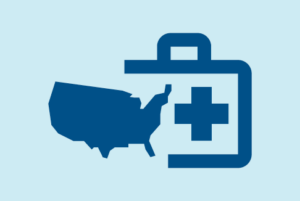Congress has finalized a $1.7 trillion year-end spending package. However, it must pass both the House of Representatives and Senate to avoid a government shutdown at midnight Friday, Dec. 23, when government funding is currently set to expire.
The spending package would fund government operations for the balance of fiscal year 2023 and includes several important health care provisions that are helpful to hospitals. These provisions were supported by CHA and our national partners, the American Hospital Association (AHA).
Key hospital provisions covering financial relief and workforce concerns include:
- Elimination of a 4% statutorily required Medicare cut, known as PAYGO
- Extension of telehealth flexibilities through Dec. 31, 2024
- Extension of the Acute Hospital Care at Home waiver, through Dec. 31, 2024
- Extension of Medicare low-volume adjustment through Sept. 30, 2024
- Reduction to 2% for cuts to physician Medicare rates (rather than 4.5%)
- Extension of incentive payments for participation in advanced alternative payment models through 2025
- Delay of payment reductions and data reporting for clinical laboratories for one year
- Addition of 200 Medicare-supported graduate medical education residency positions
- Sunset of the continuous Medicaid coverage requirements as of April 1, 2023; continues the federal medical assistance percentage funding boost for states through 2023
Other notable provisions of the bill include support for federal and state preparedness, reauthorizing and funding existing and new mental health programs, support for maternal health, and preventing cuts to education for the health care workforce.
A CHA-supported effort that is not in the bill includes additional payments for hospital patients awaiting transfer to sub-acute care settings or other proper discharge arrangements. Efforts also included the VALID Act, which would have given the Food and Drug Administration more authority to regulate in-house tests developed in academic medical centers and hospital clinical labs.
CHA is grateful for the advocacy efforts by its member hospitals and for the hard work of its colleagues at AHA.
Additional information is available in a special bulletin, as well as the bill summary and text.


